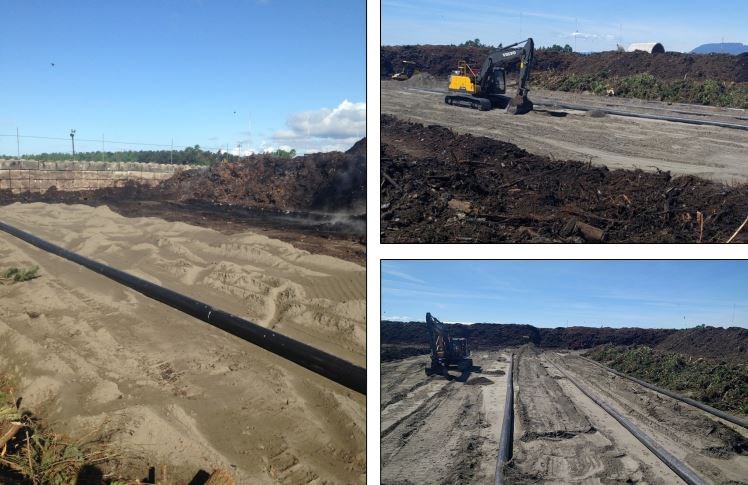The City of Richmond is making a stink over delays to odour mitigation efforts by composter Harvest Power.
The city will send a letter to Metro Vancouver — the authority which issues emission permits — urging the two sides to agree to a new permit for the waste-to-energy facility in east Richmond as quickly as possible.
According to both Metro Vancouver and Harvest Power, negotiating a new permit has proved difficult. The sides are nearing the end of a 15-month permit extension and have until Sept. 30 to reach an agreement.
“We are negotiating with Harvest Power and they have proposed some things . . . We have not had a meeting of minds,” said Ray Robb, Metro Vancouver’s manager of environmental regulatory and enforcement services.
Harvest Power’s existing permit for emissions does not reflect the reality of what the facility emits. For years, smelly odours from residential food scraps have been causing complaints across Richmond. A new permit is expected to allow Harvest Power to emit odours, but Metro Vancouver wants the facility to up its odour mitigation standards, which could prove costly.
Harvest Power’s spokesperson, Stephen Bruyneel, stated the company has done what it can — such as installing new pipes to oxygenate the compost — and is “disappointed” Metro Vancouver has delayed a new permit.
But Robb said negotiations are still required. Metro Vancouver is looking for more improvements, such as how the odour is dispersed into the air.
For example, a new compost facility in Surrey has a 70-metre smoke (odour) stack, while Harvest Power does not.
“They say it’s not feasible. So we are at a point of disagreement on that,” said Robb.
A stack can push odour into the air at high velocity, dispersing the odour quickly, whereas Harvest Power’s odour now seeps out slowly at near ground level, Robb explained, creating a low, slow-moving plume.
“There’s a lot of ground to (make up) between what the company is proposing and what our staff think is a good idea,” said Robb, explaining that Metro Vancouver must balance the private company’s ability to make a profit with the public’s interest to have breathable air.
A city council report noted “the process does not appear to be coming to a conclusion as quickly as the city would like,” and that Harvest Power presently lacks a closed facility and a series of bio-scrubbers, in addition to no stack.
Robb said Metro Vancouver wants odours to go down, but the main focus is ensuring people can’t smell them.
Harvest Power takes roughly 200,000 tonnes of food and garden waste each year and creates compost. It then burns the gas, creating power for roughly 1,000 homes.
Mayor Malcolm Brodie called the company a “responsible corporate citizen,” and expressed confidence the two sides can reach an agreement.



